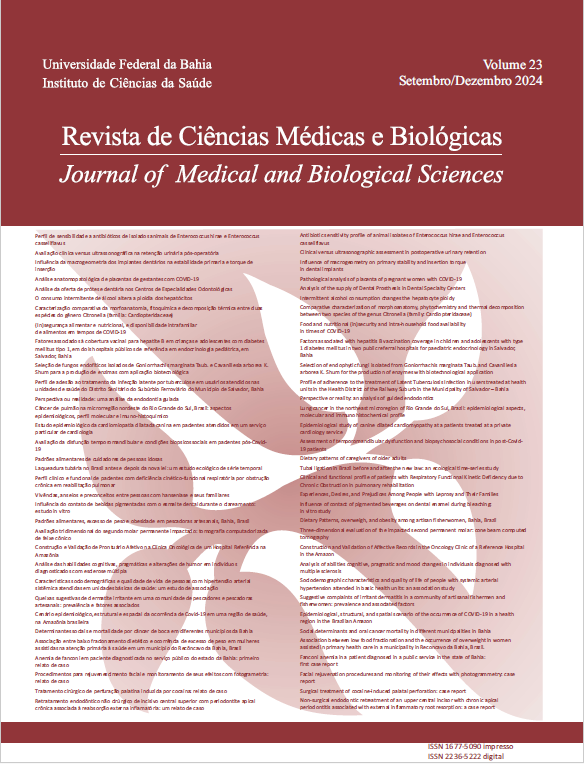VIVÊNCIAS, ANSEIOS E PRECONCEITOS ENTRE PESSOAS COM HANSEÍNSE E SEUS FAMILIARES
DOI:
https://doi.org/10.9771/cmbio.v23i3.57228Keywords:
Leprosy; Knowledge; Social Stigma; Family RelationsAbstract
Introduction. Leprosy is a chronic infectious and contagious disease that is strongly influenced by social imaginaries that affect collective and individual health care experiences and practices. Techno-scientific advances in controlling the disease do not seem to be proportionally accompanied by changes in its representations and symbologies in order to reduce historically accumulated stigmas and prejudices. Objective. The study analyzed the experiences, anxieties and prejudices experienced by people with leprosy in their families. Methodology. A qualitative study carried out through 18 interviews with people with leprosy and their families, living in the municipality of Mossoró, Rio Grande do Norte, in neighborhoods with a higher incidence and prevalence of the disease and treated at a Medical Specialties Center. Results. It was found that the family environment has a major influence on the way of life of people with leprosy, and that this understanding is fundamental for the production of the care required by the disease. There is a predominant lack of knowledge about the biological aspects of the disease, which encourages anxieties and fears about transmission. The family, being decisive in the daily life of the sick person, can be a relevant support or, in the opposite direction, an amplifier of social barriers and prejudices. Religiosity appears to have a major influence on people's experiences of leprosy. Prejudice, on the other hand, is the instrument that leads the sick person to processes of social exclusion, impacting on their quality of life. Conclusion. Exploring the experiences of people with leprosy and their families makes for more effective interventions, as it allows us to develop the social support they need and strategies for managing the disease more precisely.
Downloads
Downloads
Published
How to Cite
Issue
Section
License
Copyright (c) 2024 Journal of Medical and Biological Sciences

This work is licensed under a Creative Commons Attribution 4.0 International License.
The Journal of Medical and Biological Sciences reserves all copyrights of published works, including translations, allowing, however, their subsequent reproduction as transcription, with proper citation of source, through the Creative Commons license. The periodical has free and free access.


